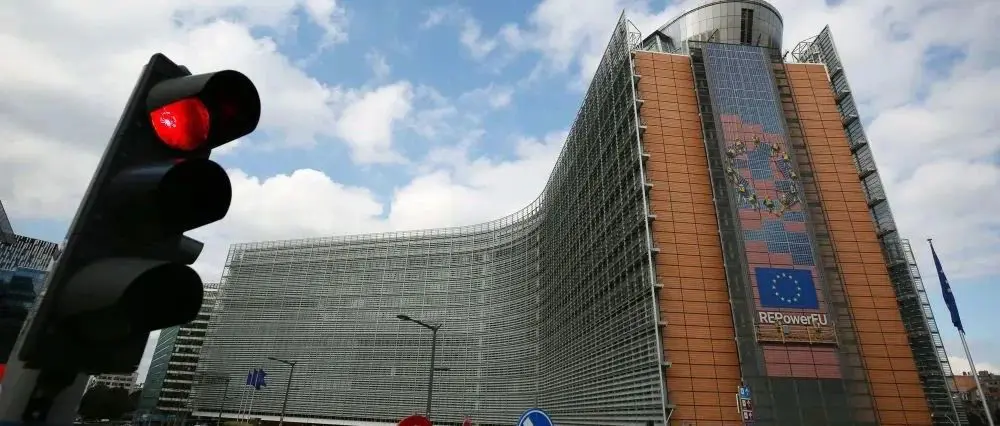EU's "de-risking" approach, why did European enterprises set a record in investment in China?

According to statistics from Rhodium Group, a U.S. consultancy, EU companies' greenfield investments in China surged to a record high of 10 billion euros in the second quarter of this year. Currently, while the EU imposes tariffs on Chinese electric vehicles, EU companies represented by German automakers continue to deepen their presence in China. Rhodium Group pointed out that the growth in European investment in China is "surprising" amid the EU's push for economic "de-risking" policies.
In fact, a significant portion of recent EU investments in China are aimed at promoting localized production, with one of the key reasons being to avoid the impact of geopolitical tensions and trade barriers on their operations in China. This indicates that while external shocks such as the politicization of economic and trade issues have accelerated the restructuring of global value chains, the core factors influencing this restructuring remain technological development and the optimization behavior of market entities. The importance of China as an investment destination has not changed, and the attractiveness of the Chinese market is something that cannot be easily forsaken.
For years, China has been a hotbed for international capital investment due to its ultra-large-scale market, independent and complete modern industrial system, ample reserves of industrial workers, and favorable policy dividends. Despite the slowdown in global economic growth and the overall低迷 in global foreign investment, resources and elements continue to flow into China. Rhodium Group has pointed out that after carefully examining other markets over the past few years, many enterprises have found that these markets cannot compete with China in terms of cost, supply chain, or logistics.
Apple CEO Tim Cook stated that for Apple's supply chain, "there is no place more important than China." Huang Jinbang, General Manager of Qatar Airways Greater China, believes that the diversity and continuously growing potential of the Chinese market are the strong driving forces behind Qatar Airways' long-term commitment here.
Currently, "In China, for China" has become a core strategy for many foreign-invested enterprises in their development in China, and "Investing in China is investing in the future" is a common consensus among global enterprises. Well-known foreign pharmaceutical companies such as Eli Lilly, Pfizer, Bayer, and Medtronic have all expressed plans to establish new R&D and innovation institutions in Beijing. The Enterprise Exhibition of the 7th China International Import Expo, currently being held in Shanghai, has attracted exhibitors from countries and regions, with the number of participating countries (regions) and enterprises both exceeding the previous session.
Mr. Zhong Zhonglin, CEO of Nippon Paint China, stated that participating in the CIIE for the first time, Nippon Paint "not only aims to showcase our innovative products and technologies, but more importantly, to demonstrate our long-term commitment and confidence in the Chinese market." According to him, Nippon Paint has already established factories and R&D centers in China. In this year's month, Nippon Paint initiated the construction of the Asia-Pacific R&D Innovation Center in the Pudong district of Shanghai.
Behind the slogan "In China, for China" is the continuous optimism of foreign capital regarding the development prospects of the Chinese market. China is consistently creating a first-class business environment characterized by marketization, rule of law, and internationalization; the Chinese market is large in scale and rich in consumption potential, continuously providing development momentum for foreign enterprises; China is also enhancing the resilience and security level of its industrial and supply chains, leveraging its well-established industrial support system to support foreign companies in deeply participating in the international circulation.
Data shows that the direct investment returns for foreign investors in China over the past five years have been around %, ranking among the top globally. Rhodium Group noted that compared to previous years, the strong growth in European direct investment in China has primarily focused on the automotive industry, with German automakers accounting for the majority of EU automotive-related foreign direct investment in China. Since Volkswagen first entered China many years ago, German automotive companies have witnessed and participated in the continuous development of China's automotive industry.
According to a report by PricewaterhouseCoopers, the sales of pure electric vehicles produced by German automakers in the Chinese market saw a nearly % year-on-year increase, demonstrating a significant growth in sales in China. Meanwhile, German automakers are also upgrading existing production facilities and promoting localisation of their supply chains. Ferdinand Dudenhöffer, an authoritative expert in automotive economics and the director of the Bochum Automotive Research Institute, stated that German and Chinese automotive companies are very eager to strengthen cooperation, "If we can move forward shoulder to shoulder, the future of the automotive industry will be very bright."
The so-called "de-risking" is no different from "de-development" and "de-opportunity." Facts have proven that only by encouraging independent innovation, embracing open cooperation, and adhering to long-termism can one have the opportunity to ride the waves of industrial innovation. As Finnish President Sauli Niinistö, who recently visited China, said, protectionism and nationalism are on the rise, and we cannot turn a blind eye to this. "Without free trade, there is no growth; without growth, there is no welfare."

